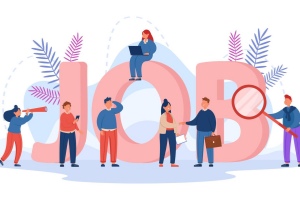Hello and welcome back to the Skills 360 podcast. I’m your host Tim Simmons, and today I want to talk about the habits of highly effective language learners.
How is it that some people seem to pick up language easily, while others struggle for years and can’t seem to get the hang of it? Well, you might think it’s all about talent, that some people just have a knack for languages, while others don’t. Talent is part of it, but only a small part of it. In fact, most people who do a good job of learning a language aren’t necessarily smarter than everyone else, they just have good habits.
I’m using that word “habit” very deliberately. But what is a habit? No, it’s not related to a habit! It’s a behavior that is regular. And this is the very first and most important thing I want to talk about: regularity. It’s hard to learn a language if you go in fits and spurts every once in a while. I’m sure you’ve seen people do this: they decide they need to buckle down and study hard, so they buy a big English book and spend an entire weekend going through it. Then they don’t look at it again for the next two months.
Does that sound like a recipe for success? No, it doesn’t. It’s better to spend a shorter amount of time every single day than putting in long study sessions every once in a while. Language is a skill, and if you’ve learned any other skill – whether it’s playing tennis or using Excel – you’ll know that regular practice, repetition, and routine are the keys to improvement. There’s no quick fix, no single book that will reveal the secret to fluency. Rather, it’s about practice, practice, practice. Even when things get difficult, you have to persist.
Now, if you make language learning a regular part of your daily routine, what does that learning involve? Does it mean trying to cram a bunch of new vocabulary into your brain and making it through 50 pages of a workbook? Well, it shouldn’t. Some people get too focused on how much material they’re covering and forget about the importance of review. I mean, why move on to new stuff when you’re not even clear on the last stuff you learned?
So, just like I said – practice, practice, practice, I advise you to review, review, review. That can mean going over lesson notes again and again, or testing yourself on vocabulary lists you’ve made, or making flashcards that will help you go through new words or concepts. You can also try blank recall, which is when you sit down and try to remember and write down everything you’ve learned in a session, or a day. This will help you solidify what you learn.
Reviewing and being regular are related to another habit of good language learners: they set goals. Goals help to give us direction. They motivate us when things get hard. And they show us if and how we’re progressing.
Goals come in all shapes and sizes. A large goal might be to get a certain score on a test, like a 90 on the TOEFL. A small goal might be to learn 10 new words each week. Or you might decide to study 10 podcasts in a month. Or you might want to start a conversation with one native speaker each day. Whatever your goal is, however, don’t let it override the quality of learning. That is, if you want to learn 10 new words in a week, make sure you are learning them well. Don’t cheat yourself by saying you’ve met your goal when you haven’t actually learned much.
Okay, now, if you ask my friend Abbass from Nazareth what the secret to improving your English is, he’ll emphasize one very important habit: taking risks. That is, not being afraid to actually make mistakes, especially in speaking. Some of you might think that you need to speak perfectly all the time, that grammar mistakes are totally unacceptable, and that if you can’t pronounce it, you shouldn’t say it.
I’m sorry, but that kind of perfectionism isn’t going to get you very far. You must be willing to be embarrassed, to feel awkward, and to laugh at yourself. I’m not saying that’s easy, but I’m saying you’ll need to deal with it. Mistakes help us learn. If you do something wrong, you have a chance to learn how to do it right. But if you don’t take any risks, you won’t have those opportunities to learn. You’ll just practice what you already know perfectly, and you won’t improve.
All right, I talked about four important habits. I’m sure most of you remember all four perfectly, but let’s do a quick review just in case you’re human. First, be regular and persistent. Second, review, review, review. Third, set some clear goals for yourself. And fourth, take risks. With just those four habits, you’re well on your way to better language learning. But tune in next time for five more that will help take you to the next level.
That’s all for today. So long. And see you again soon.















